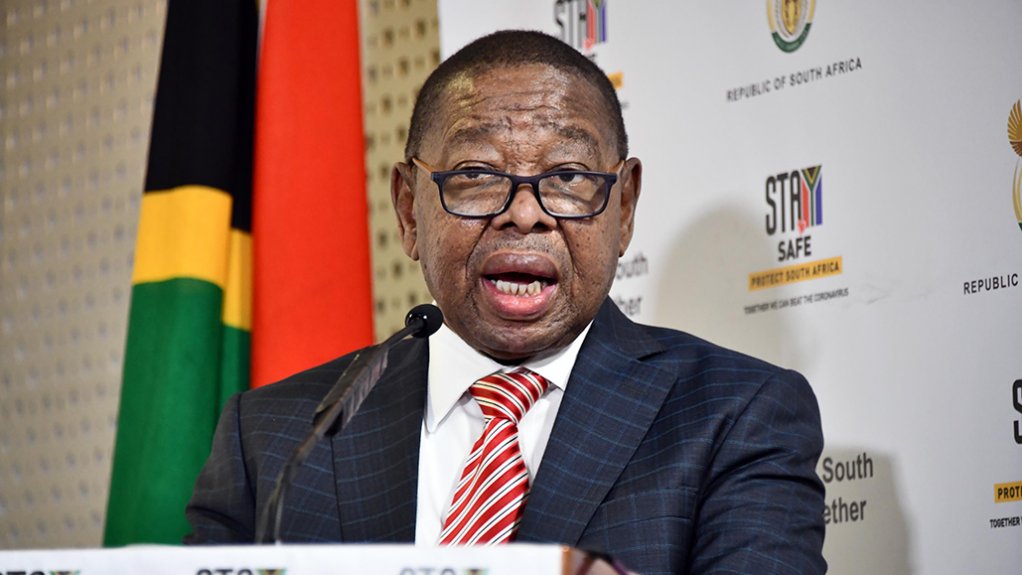Weak financial controls, sluggish IT systems and corrupt officials have led to the National Student Financial Aid Scheme (NSFAS) bleeding nearly R5-billion in wrongful payments to students who don’t qualify for the grant.
On top of this there are students who received bursaries without submitting documents about their parents or guardians.
The Special Investigative Unit (SIU) laid bare their findings into the scheme during a meeting of the Standing Committee on Public Accounts (Scopa) on Tuesday.
SIU chief national investigator Leonard Lekgetho told Scopa that at 15 higher education institutions in Gauteng, R1.9-billion (R1 992 784 618) was paid to students who do not qualify for NSFAS.
In this regard, payments were made to 17 788 students.
An amount of R787-million (R787 537 829) was paid to students in the Western Cape who are not eligible for NSFAS grants.
Just over 5 400 students in the province received the aid which they did not qualify for. They were at 10 institutions in the province.
In KwaZulu-Natal, an amount of R607-million was paid to 4 409 ineligible students. These students were found at 13 higher education institutions.
In the Eastern Cape, R597-million was paid to students at 12 of the province’s higher education institutions.
Higher Education Minister Blade Nzimande told the committee that it cannot be right to criminalise poor students.
“But also, we see the children of senior managers working at state-owned entities applying for NSFAS. They register their children with their grandmother’s name. They go to private high schools, but then want government to fund their tertiary education,” he said.
The SIU was informed that there were 52 532 students receiving NSFAS grants (approximately R2.4-billion) without declaring any parent or guardian.
Lekgetho said the SA Social Security Agency (Sassa) and NSFAS do not compare the parent or guardian details captured on the Social Pension System (SOCPEN) against the parent or guardian details provided in the NSFAS application by the applicant.
“They rely solely on Sassa data to see if the applicant has a Sassa grant. SOCPEN data can also provide parental/guardian information; and the parents or guardian information obtained via the Department of Home Affairs vetting is sent to SARS to obtain income information to ascertain if the applicants meet the income threshold criteria,” he said.
Lekgetho said NSFAS had failed to design and implement controls to ensure that there was an annual reconciliation between the funds disbursed to the institutions and the allocation of those funds to the students.
“This control weakness has led to overpayments and underpayments of funds to the different institutions over the period 2017 to date. NSFAS has recently appointed a service provider to assist them to perform this reconciliation via a process called ‘close out reporting’,” he said.
The SIU found:
- System usernames are created with no sensible names linking it to the actual user;
- The database administrator/systems administrator could not determine who in the organisation had access to what system;
- Access control to the databases is poorly controlled; and
- Cannot obtain system user logs prior to 2019. The activity logs only started recently about 2019/20, so user activity logs prior to 2019 did not exist because it is alleged that this feature was deliberately turned off. No reason was provided as to why and by whom.
He also spoke of duplicate payments by NSFAS.
“Before 2021, where the student registered at multiple institutions, the institution would submit the list accordingly and the system would allow multiple registrations of a student in different institutions to pass through to allocate disbursement to the respective institutions.
"This caused a problem whereby some students would be funded multiple times and receive multiple grants.
“The system has since been changed to mitigate this type of error and the student funds would be suspended until verification by the institutions to determine where the student is registered is concluded. However, it would seem that the funds already incorrectly disbursed to the institutions where the student is not actually studying, are still held by the institution, and kept in an interest-bearing account(s),” he said.
ANC MP Sakhumzi Somyo expressed his concerns with the problematic NSFAS payment systems.
“There should be a single payment system to deal with the problems we are seeing at NSFAS. We need the SITA (State Information Technology Agency) to help NSFAS,” he said.
Nzimande agreed with Somyo, who said the IT problems within NSFAS are his biggest headache.
During the meeting, the NSFAS board chairperson Ernest Khosa also announced that suspended CEO Andile Nongogo was fired.
NSFAS revealed last week that a probe by law firm Werkmans Attorneys and advocate Tembeka Ngcukaitobi found that Nongogo, in addition to a slew of other "irregularities", had handpicked four firms to pay around 1.1-million students their R1 650 monthly allowances directly and not through tertiary institutions, which had been the previous payment method.
On Nongogo's axing, ANC MP Bheki Hadebe said, “It's like we are in Hollywood. There appears to be no co-ordination with the appointment of these CEOs,” he said.
EMAIL THIS ARTICLE SAVE THIS ARTICLE
To subscribe email subscriptions@creamermedia.co.za or click here
To advertise email advertising@creamermedia.co.za or click here











